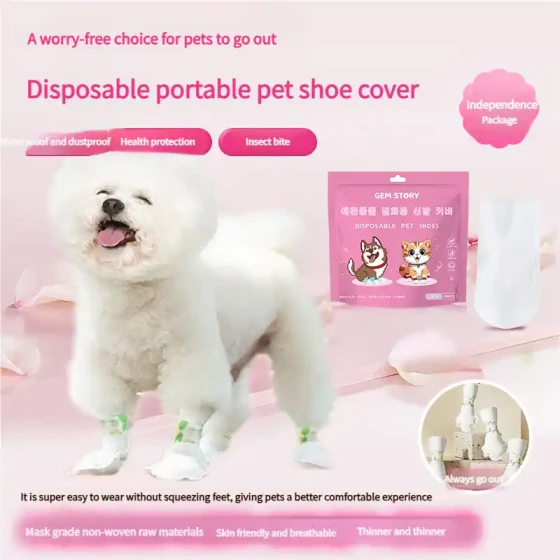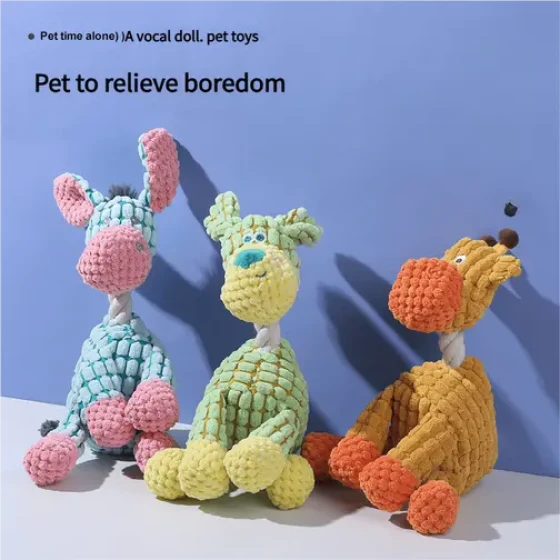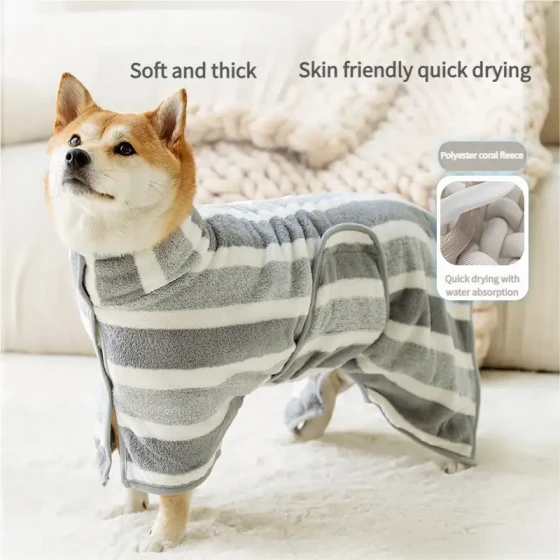Husky Psychological Care

Raising a Husky, scientifically and reasonably feeding to cultivate a healthy body is the first step. Next is necessary skill training. After these two steps are completed, the Husky’s care is still not complete. We must also pay attention to its psychology to help it establish a good “dog character.”
1. Guidance of the individual dog’s awareness is key to its psychological growth
Entering the physical growth period of 6 to 9 weeks, with the emergence and aggravation of bodily differences, the dog’s activity shows a relatively strong "self-awareness," characterized and caused by food competition and similar conflicts.
The evolution and intensification of individual dog awareness cause Husky puppies to further recognize themselves, resulting in behaviors based on conditioned reflexes, such as hesitation to eat available food or reluctance to compete for or possess objects. At this time, puppies should be raised separately. Seizing this moment is very important; it is best to choose a time when these behaviors have appeared for a while but have not caused severe psychological stress. This is a way to help build self-confidence.
When separated, the Husky puppies should first maintain visual contact to meet their need for the group. Space isolation training begins the development of the subordinate dog’s personality and cultivates qualities of a dominant dog. At this time, feeding based on the dog’s nutrition ensures the dog stays energetic. Setting separated fences allows interaction opportunities through barking and intimidation between dogs. In loosely managed group feeding, the difference between dominant and subordinate dogs worsens, often causing subordinate dogs to be neurotic and lacking confidence. Compared to this, it is rare to find extremely weak or neurotic dogs in domestic settings, which may be related to timely separate raising.
2. The playful behavior of Husky puppies reflects their psychological traits
Play among Husky puppies is noticeably more frequent than among adult dogs. Play behavior accompanies growth, and its content constantly changes. It is also an early stage for developing certain working abilities. Two necessary conditions occur for this behavior: one is an internal sense of joy, and the other is surplus energy. Therefore, creating environments for play, trainers playing with the dogs, and providing toys such as balls, wood blocks, and burlap are catalysts to promote the development of play behavior and a healthy psychology.
If obvious fights occur during play, they should be stopped by humans. For dogs not skilled at playing, opportunities can be created during morning and evening when the puppies are excited, utilizing their excitement so the dogs can discover the joy of play themselves. Through play activities, the dog’s activity increases, confidence grows, which is very beneficial for their development as working dogs.
3. Meeting the safety needs of Husky puppies is the foundation of a healthy psychology
"Benefit and harm are the only perceptions Husky puppies have of the outside world." During survival, the feature of "seeking benefits and avoiding harm" is very prominent. However, at 2 to 6 weeks, puppies’ sensory organs are gradually perfected, and the learning method of "imprinting" plays a significant role. At this stage, harmful stimuli from the outside world easily form firm and hard-to-change memories.
Therefore, during this period, a safe environment should be created to avoid sudden inadvertent stimuli. Caregivers need to establish good relationships with both the mother dog and Husky puppies. As an important "environment" apart from the mother, the caregiver’s "safe" place provides favorable conditions for puppies to separate from their mother and be confident during growth. Many cases of timid and neurotic adult dogs are often related to the harmful stimuli received during puppyhood. For Husky puppies, safety is everything.
4. The group relationship of Husky puppies is an important step in psychological growth
This can promote further sensory development and increase communication ability. The social nature of dogs is laid in early life, but adult dogs’ habits mainly reflect puppy interactions. For dogs younger than five weeks, because of minimal functional differences, activities are very similar. Interactions rarely cause harm, and behaviors like biting and chasing at this stage rehearse hunting instincts. Therefore, providing venues that stimulate communication, such as lawns, promotes spatial awareness and strengthens puppy physical fitness. Changing the puppies’ activity grounds also provides more opportunities for play.
Like humans, only through inner and outer cultivation and the joint development of body and mind can raising a Husky be considered relatively qualified.





